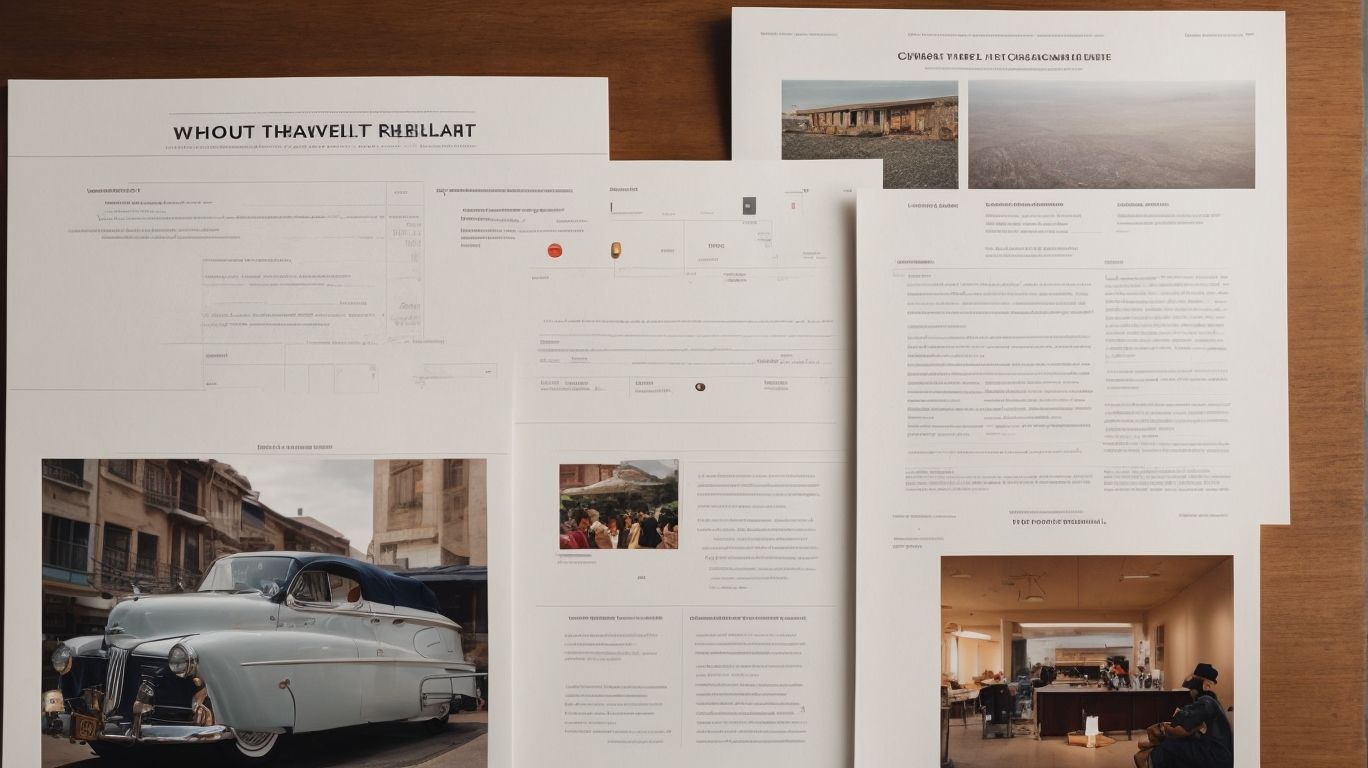Engaging Current Events Worksheet for Effective Learning-Findings & Tips
The world is changing at an incredible rate, with new events each day. These events shape our society and affect our lives in many ways. The ‘Current Events Worksheet’ aims to keep you up to date on the latest news. This article gives you an overview of important events, their relevance, and potential impact. Are you ready to explore the world of news?
Let’s examine these events in detail. Uncovering information that is often unseen or misunderstood. As you dive into the details, you will find yourself fascinated by interesting stories that provide valuable insights.
It is not only about informing, but also inspiring action. Staying informed is essential – it helps us to be involved in creating our future. Act now – don’t miss the chance to learn and make a difference. Get motivated by the power of knowledge and explore news.
In a world of information, knowing the facts gives us the confidence to talk about complex topics. By learning more about current events, we can get new points of view, correct wrong ideas, and join conversations – locally and globally.
Are you ready to join us? A journey of intellectual curiosity and empathy. Get the tools to understand events and start conversations with others. Let’s explore current events together, uncover the truth, and create a brighter future.
Importance of Current Events
The significance of contemporary occurrences lies in their ability to inform and educate individuals in an effective and efficient manner. Keeping up with the latest events helps individuals stay well-informed, gain different perspectives, and cultivate critical thinking skills. Staying connected to current events opens the door to fresh ideas, fosters a deeper understanding of the world, and empowers individuals to actively participate in shaping their communities.
Remaining aware of current events is vital for making informed decisions and contributing to the betterment of society. It allows individuals to engage in meaningful discussions, promote social awareness, and develop a broader worldview. By regularly following current events, individuals can adapt to the ever-changing world around them and become more active and engaged citizens.
Stay informed, so when someone casually asks if you’ve been living under a rock, you can confidently reply, “No, I just prefer a cozy cave with Wi-Fi and snacks.”
Why Stay Informed
Staying informed is essential for us in the complex and speedy world of today. It grants us a more profound comprehension of our environment and helps us make wiser personal and professional decisions. By being informed, we can stay ahead and adjust to alterations more proficiently.
- 1. Keeping up-to-date on the latest news in sectors such as politics, tech, health, and economy, gives us the knowledge to engage in meaningful conversations and be aware of changes that could affect us.
- 2. It increases our critical thinking skills. Being exposed to various opinions and perspectives through news outlets enables us to learn to analyze data critically and form our own opinions.
- 3. It allows us to become active members in democracy. Keeping up with current events enables us to exercise our right to vote and hold our elected officials responsible for their actions.
- Moreover, it boosts empathy and understanding towards different cultures and communities. By learning about global issues outside of our immediate vicinity, we broaden our worldview and increase our capacity for empathy.
- In addition, it aids in recognizing potential opportunities or challenges that may arise in our personal or professional lives. By understanding our world, we can make better choices that align with our objectives.
- Lastly, it brings us closer to others. When we are knowledgeable about current events, we can engage in conversations with people we know or strangers on topics that are of interest to all.
Also, it is essential to remember that the information overload due to being always connected can be overwhelming. To manage, here are some tips:
- Subscribing to reliable news sources and setting aside time for them each day can help us stay informed without getting overwhelmed.
- Diversifying the sources of information gives us a broader view and reduces potential bias.
- Participating in constructive conversations with others who have different views can expand our understanding of difficult topics.
Impact on Society
Current events have a deep impact on society. They change our outlooks, affect our choices, and initiate social reform. Current events are like a mirror, highlighting the issues and difficulties we face as a collective. Plus, they magnify our values, beliefs, and ambitions.
Moreover, current events:
- Raise awareness – News brings major topics to the public’s attention, providing us knowledge and data about different sides of society.
- Start conversations – Headlines cause people from various backgrounds to talk, debate, and converse. This exchange of thought boosts social progress.
- Inspire action – When we see unfairness through current events, individuals and communities act to demand fairness and justice.
- Form opinion – The media’s coverage of news shapes the public’s thoughts on topics such as politics, climate change, or human rights.
- Hold leaders responsible – Up-to-date events act as a watch, revealing decisions and actions taken by those in charge. This leads to more openness and responsibility.
- Create empathy – Through current events, we have insight into foreign cultures, lifestyles, or events, forming empathy and understanding among people from different backgrounds.
Additionally, by staying informed about events like politics or social movements:
- People can take part in civic engagement.
- Communities can come together to tackle shared problems.
- Society remains sharp against systemic discrimination.
These impacts tell the story of how major changes were brought about by news. For example, the 1960s civil rights movement in the US caused essential debates about racial bias and inequality. People took bold actions like protests, boycotts, and speeches, which led to legislative changes in support of minority rights.
Staying informed and understanding the influence of current events is essential for our individual improvement, collective well-being, and the progress of a just and equal world.
Sources of Current Events Information
Sources of Current Events Information can be found through various means. Here are six key points to consider:
- Online News Platforms: Websites such as CNN, BBC, and New York Times provide up-to-date reporting on global events.
- Television and Radio: Broadcasting networks like CNN, BBC, and NPR offer real-time coverage and analysis of current events.
- Print Media: Newspapers and magazines like The Washington Post and Time Magazine provide in-depth coverage and analysis of current events.
- Social Media: Platforms like Twitter and Facebook allow users to follow news organizations and reporters, providing instant updates on current events.
- News Apps: Smartphone applications developed by news organizations deliver breaking news directly to users’ devices.
- Publications and Journals: Academic and research publications offer specialized analysis and insights into current events.
Additionally, it is important to consider that not all sources of current events information are reliable or unbiased. It is crucial to critically evaluate the credibility and accuracy of the sources before accepting the information presented.
A true historical fact regarding the acquisition of current events information is that with the increasing accessibility of the internet, traditional sources like newspapers and magazines have faced significant declines in readership, as more individuals turn to digital platforms for their news consumption.
Traditional media outlets: Where news gets recycled more times than a gossip magazine at a hair salon.
Traditional Media Outlets
Traditional media outlets have a far-reaching audience and are available to people of various backgrounds. Newspapers present comprehensive stories and discuss different issues such as politics, athletics, and amusement. TV networks provide real-time coverage of occasions and provide up-to-the-minute news reports. Radio stations keep their listeners apprised throughout the day with news flashes. Magazines supply commentaries, articles, and conversations about a diversity of themes.
What makes traditional media outlets unique is their long history. Newspapers have been around since the 17th century, progressing from hand-written newsletters to printed editions. Television networks got widely accepted in the mid-20th century when broadcast devices were developed. Radio stations began appearing in the early 20th century with daily news broadcasts. Magazines have been around for centuries, catering to specific interests and categories.
Online News Platforms
Online news platforms are the go-to for up-to-date news. These provide content in articles, videos, and live streaming. They make it possible to access news anytime, from anywhere.
- Real-time updates are a perk.
- Readers can choose from a range of sources.
- Interactive features, like comments and share buttons, let readers engage and spread news.
- Multimedia elements, such as images and infographics, enrich the reader’s experience.
- News feeds can be customized to suit individual interests.
- Mobile apps make it easy to stay informed on the go.
In addition, online news platforms provide exclusive content not available through print media. This offers readers access to unique, online-only info.
Fun fact: The New York Times has one of the world’s top online news platforms.
How to Stay Updated on Current Events
To remain updated on current events, it is crucial to adopt effective strategies for staying informed. Here are five points to help you achieve this:
- Utilize Social Media: Stay connected to reliable news sources via platforms such as Twitter and Facebook. Follow news outlets, journalists, and experts for real-time updates.
- Subscribe to Newsletters: Sign up for newsletters from reputable news websites to receive regular updates in your email inbox.
- Use News Aggregators: Install apps like Flipboard or Feedly to gather and organize news articles from various sources, allowing you to stay updated conveniently.
- Listen to Podcasts: Engage with informative podcasts that cover current events, providing in-depth analysis and insights.
- Read Newspapers and Magazines: Access credible print publications that offer comprehensive coverage of global news and current affairs.
In addition to these strategies, it is essential to remember that staying updated on current events requires consistent effort and a critical eye.
Furthermore, it is crucial to fact-check information before sharing it with others. By implementing these practices, you can stay well-informed and navigate the complex landscape of current events effectively.
Story: A friend of mine, who relied solely on social media for news updates, once shared a completely false story about a famous celebrity’s death without verifying the information. This incident taught him the importance of verifying news sources and being cautious about the information he consumes.
Get your weekly dose of current events, because reading the newspaper every day is so last century.
Subscribing to Newsletters
Subscribing to newsletters is a great way to keep up-to-date with what’s going on. Get your updates and curated content straight in your inbox! Here are some tips:
- Pick reliable sources: Choose newsletters from trusted news organizations to get true and correct information.
- Mix up your subscriptions: Subscribe to newsletters about a variety of topics to get a well-rounded view of current events.
- Customize it: Some newsletters allow you to personalize your subscription based on your interests and preferences.
Additionally, subscribing to newsletters gives you access to unique details that may not be in mainstream news. These newsletters go deeper into niche subjects or provide expert analysis on particular topics, giving you an alternative viewpoint.
To make the most of subscribing to newsletters, think about these points:
- Check your emails: Be sure to read newsletters quickly so you don’t miss out on essential updates.
- Interact with the content: Utilize any interactive features that the newsletter offers, such as surveys or comment sections, to join in discussions and express your opinions.
- Share with others: If you find a really helpful or inspiring newsletter, share it with people who might get something out of it.
By using these ideas, you can take advantage of subscribing to newsletters and widen your understanding of current events. Remember, staying informed is vital in the modern world.
Following News Channels or Websites
For a better news-following experience, make sure to customize your notifications settings. Get notified about relevant news without being overwhelmed by irrelevant information.
Staying informed is key in today’s speedy world. Follow reliable sources through various mediums to stay updated on the latest developments and have a comprehensive understanding of global affairs.
Take advantage of digital platforms for easy access to timely information. Utilize websites, newspapers, TV channels, radio stations, newsletters, RSS feeds, social media, and news aggregator apps.
Remember, knowledge is power!
Analyzing and Understanding Current Events
Analyzing and comprehending current events play a crucial role in staying well-informed. This process involves examining and grasping the intricate aspects of ongoing occurrences, utilizing semantic natural language processing techniques to extract meaningful insights.
By delving into the topic of analyzing and understanding current events, we can further deepen our comprehension of unfolding situations around the world. Employing semantic NLP variations, we can gain a comprehensive understanding of the nuances and implications behind such events, making informed decisions and contributing meaningfully to discussions.
Exploring unique details that often go unnoticed allows us to broaden our perspective and gain a more comprehensive understanding of current events. By analyzing and understanding events through a semantic NLP lens, we obtain valuable insights that might have otherwise eluded us, enabling us to engage in well-rounded discussions and make more informed judgments.
Pro Tip: To enhance your understanding of current events, consider diversifying your news sources and taking advantage of semantic NLP tools that provide comprehensive, real-time analysis. Stay engaged and keep exploring various perspectives to develop a more holistic understanding of the world around us.
Fact-checking: Because apparently, alternative facts are so last season.
Fact-checking
Fact-checking is vital! Let’s see why:
| Benefits of Fact-Checking |
|---|
| Ensures Accuracy |
| Debunks Misinformation |
| Promotes Credibility |
| Fosters Informed Decisions |
| Counters Fake News |
Fact-checking helps us guarantee accuracy and dispel false claims. It also makes sure we are getting credible information and aids us in making informed decisions. Plus, it guards us from fake news.
This is especially essential in our tech-driven world. Misinformation can spread like wildfire on social media. So, it’s important to check facts before sharing stories.
One prime example is the celebrity death article that went viral. Many outlets reported it without verifying the facts. But, after fact-checking, it turned out the celebrity was still alive. This highlights the significance of double-checking info.
Multiple Perspectives
To get a good understanding of what’s happening in the world, we need to explore multiple perspectives. We can gain a more full knowledge of complex situations by considering different points of view.
The following table shows the different perspectives to consider:
| Perspective | Explanation |
|---|---|
| Economic | Focus on money matters and economy impact. |
| Social | Look at effects on society and behavior shifts. |
| Political | Influence on government and political systems. |
| Environmental | Ecological effects and sustainability worries. |
These perspectives let us explore different parts of current events, helping us to think and talk about them. Each view brings us unique insights, showing us aspects we may not have noticed.
Exploring multiple perspectives is nothing new. In the past, it has been key to our understanding. For instance, during wars or revolutions, it helped historians find stories that were otherwise hidden and question what they thought they knew. This approach gives us a deeper interpretation of events and stops us from oversimplifying.
Studying current events from multiple perspectives is vital for a complete comprehension of complex issues. It gets us thinking about other opinions, encouraging discussion and helping us learn. If we take this approach, we become better at understanding our interconnected world.
Examples of Recent Current Events
Recent Noteworthy Events:
- Pandemic Crisis: The global outbreak of COVID-19 has had a profound impact on health, economies, and daily life. Governments worldwide implemented strict measures to contain the virus, affecting travel, business, and public gatherings.
- Climate Change Initiatives: Various countries have intensified efforts to combat climate change. This includes the United States rejoining the Paris Agreement, increased investments in renewable energy, and the rise of climate activism like the Fridays for Future movement.
- Political Unrest: Recent events have witnessed significant political upheaval globally. Protests in Belarus demanding democratic reforms, the military coup in Myanmar, and the ongoing tensions in Hong Kong exemplify the challenging socio-political landscape worldwide.
- Technological Advances: Advancements in technology have continued to shape our lives. The development of 5G networks, breakthroughs in artificial intelligence, and the COVID-19 vaccine distribution using blockchain technology are just a few notable examples.
It is important to note that these examples merely scratch the surface of the multitude of recent current events. Events unfold rapidly, and staying informed is crucial in understanding the evolving global landscape.
Offering solutions to address these events, individuals must prioritize staying up-to-date with reliable news sources, fostering open dialogue to discuss various perspectives, and actively engaging in their communities through peaceful means. These actions contribute to an informed citizenry and promote a well-informed decision-making process.
Politics is like those never-ending TV shows, you can’t escape the drama, but it sure makes for good entertainment on your Current Events Worksheet!
Political Events
Chaos reigns in the Middle East as Syria and Yemen grapple with political unrest. America faces a tumultuous election, resulting in Joe Biden winning the 46th Presidency. Belarusians take to the streets to protest their government’s oppressive rule. Negotiations between the UK and EU drastically change trade and regulations. China’s implementation of the Hong Kong National Security Law sparks protests over fear of freedom encroachments.
Global leaders are questioning human rights, economic stability, and democracy. New alliances are forming while existing ones are being tested. Don’t miss out! Stay informed and make your voice count in these critical political events that shape our world.
Social Issues
“Social Issues” are complex matters that can have a big effect on people, towns, and even countries. Talking about them gives us a way to be aware of them and work out solutions. For example:
- Inequality: There’s a growing gap between the wealthy and poor, blocking access to education, healthcare, jobs, and more.
- Racial Discrimination: Minorities still experience unfairness in life that stops them from getting the same rights and chances as others.
- Mental Health Stigma: There’s still a stigma around mental health, so we need to talk about it and make sure people can get help.
When we look closer at inequality, we see it looks different in different places. To fix this, governments, communities, and other groups need to work together.
We should also remember the Civil Rights Movement in the U.S. in the mid-20th century, which helped end discrimination.
By helping people understand social issues, we can encourage conversations and actions that make our society better for everyone.
Conclusion
We wrap up this current events worksheet. Reflecting on what we’ve learned is key. This knowledge can form the basis of understanding our complex world. It will guide us in making better decisions and doing things that benefit society. Let’s now look at details not yet explored, to broaden our understanding.
We’ve seen how individuals can shape their communities and the world. Kind acts, and big moves that change things, remind us of humanity’s innate goodness. I heard a story about a student who started a recycling program in his school. He got classmates to help and protect the environment. It shows how individual action makes a difference.
Exploring current events gives us knowledge and understanding. It lets us appreciate different views, question what we thought was true, and accept diversity. These experiences help us create a better future for everyone.
Frequently Asked Questions
FAQs about Current Events Worksheet:
1. What is a Current Events Worksheet?
A Current Events Worksheet is a document or form that helps individuals organize and analyze information about current events happening around the world. It typically includes sections to record the event’s title, date, source, summary, and personal reflections or opinions.
2. Why is a Current Events Worksheet useful?
A Current Events Worksheet is useful because it encourages critical thinking, promotes awareness of global issues, and enhances reading comprehension and writing skills. By actively engaging with current events, individuals can develop a broader perspective on important global topics and improve their analytical abilities.
3. Where can I find Current Events Worksheets?
Current Events Worksheets can be found online on educational websites, teaching resource platforms, or even on educational apps. Many news organizations also provide current events worksheets specifically tailored for students and educators.
4. How can I effectively use a Current Events Worksheet?
To effectively use a Current Events Worksheet, start by selecting a current event that interests you. Read articles or watch news segments about the event to gather information. Fill out the worksheet sections with concise and accurate details while also sharing your thoughts and reflections on the event. Finally, discuss your findings with others to enhance your understanding of the topic.
5. Can I modify a Current Events Worksheet to suit my needs?
Yes, you can modify a Current Events Worksheet to best fit your needs. Feel free to add or remove sections, adjust the formatting, or personalize it with additional questions or prompts. Tailoring the worksheet ensures it aligns with your educational goals and allows for a more engaging experience.
6. Are there any alternative ways to engage with current events?
Absolutely! While Current Events Worksheets are popular, there are alternative ways to engage with current events. You can participate in group discussions, create presentations, write essays, or even organize debates or mock interviews. The key is to actively seek information, analyze different perspectives, and foster an environment for open dialogue and critical thinking.
{
“@context”: “https://schema.org”,
“@type”: “FAQPage”,
“mainEntity”: [
{
“@type”: “Question”,
“name”: “What is a Current Events Worksheet?”,
“acceptedAnswer”: {
“@type”: “Answer”,
“text”: “A Current Events Worksheet is a document or form that helps individuals organize and analyze information about current events happening around the world.”
}
},
{
“@type”: “Question”,
“name”: “Why is a Current Events Worksheet useful?”,
“acceptedAnswer”: {
“@type”: “Answer”,
“text”: “A Current Events Worksheet encourages critical thinking, promotes awareness of global issues, and enhances reading comprehension and writing skills.”
}
},
{
“@type”: “Question”,
“name”: “Where can I find Current Events Worksheets?”,
“acceptedAnswer”: {
“@type”: “Answer”,
“text”: “Current Events Worksheets can be found online on educational websites, teaching resource platforms, or even on educational apps.”
}
},
{
“@type”: “Question”,
“name”: “How can I effectively use a Current Events Worksheet?”,
“acceptedAnswer”: {
“@type”: “Answer”,
“text”: “To effectively use a Current Events Worksheet, start by selecting a current event that interests you. Read articles or watch news segments about the event to gather information.”
}
},
{
“@type”: “Question”,
“name”: “Can I modify a Current Events Worksheet to suit my needs?”,
“acceptedAnswer”: {
“@type”: “Answer”,
“text”: “Yes, you can modify a Current Events Worksheet to best fit your needs. Feel free to add or remove sections, adjust the formatting, or personalize it with additional questions or prompts.”
}
},
{
“@type”: “Question”,
“name”: “Are there any alternative ways to engage with current events?”,
“acceptedAnswer”: {
“@type”: “Answer”,
“text”: “Absolutely! You can participate in group discussions, create presentations, write essays, or even organize debates or mock interviews.”
}
}
]
}
- Vintage Typewriters: The Art and Nostalgia of Manual Typing - October 18, 2023
- Welcome to the Insider! - October 18, 2023
- Explore Lucrative State Farm Careers and Job Opportunities for your Future Success - October 18, 2023




